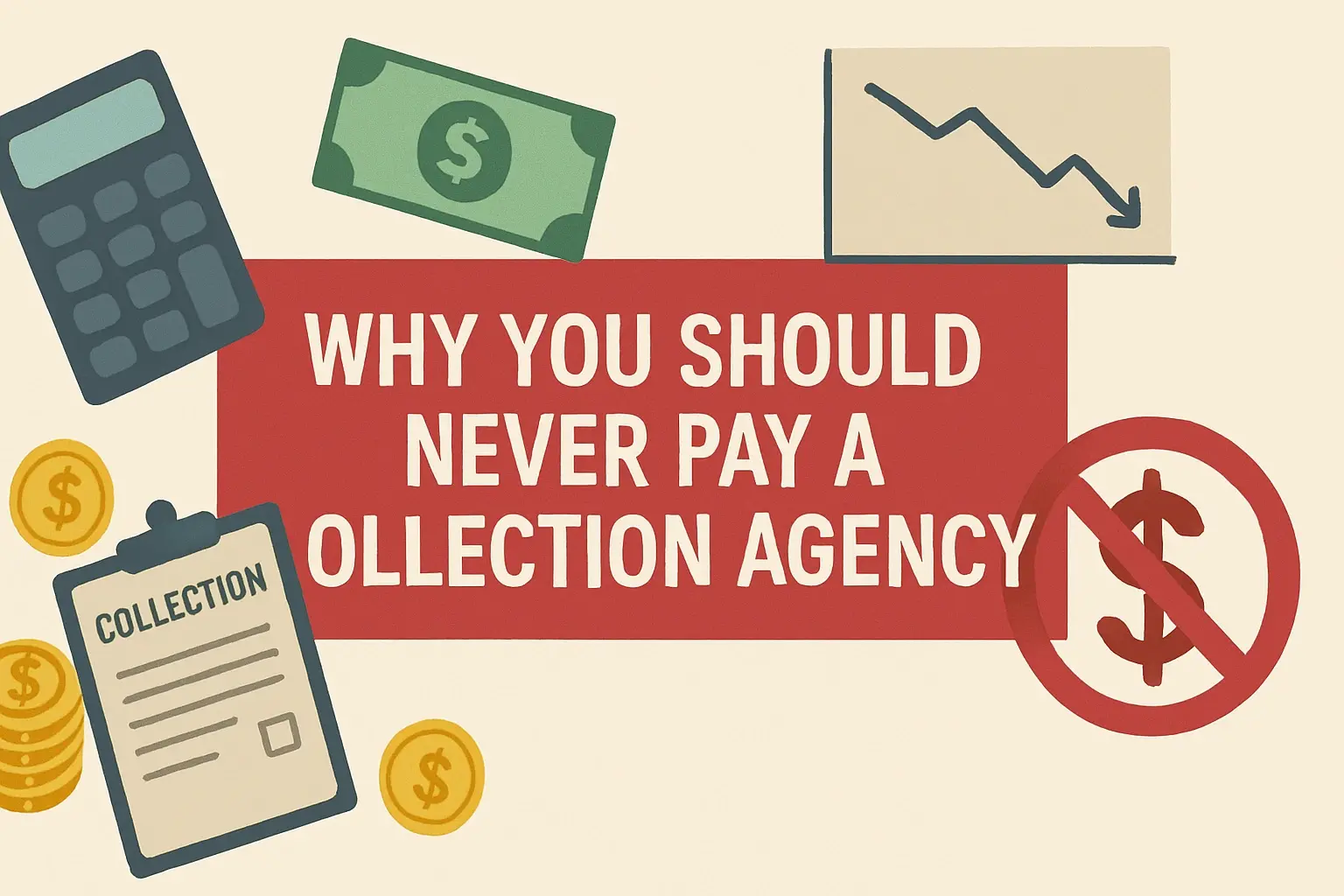-
Posted on: 24 Dec 2022

-
A bad credit score can feel like a heavy burden, impacting your ability to secure loans, rent an apartment, or even get a job. Fortunately, it's not a permanent sentence. While you can't magically erase the past, you *can* take steps to improve your credit score and potentially remove inaccurate or outdated negative information from your credit report. This comprehensive guide will provide you with the knowledge and tools you need to navigate the world of credit repair and pave the way for financial freedom.
Understanding Your Credit Score
Before diving into credit repair strategies, it's crucial to understand what a credit score is and how it's calculated. Your credit score is a three-digit number that represents your creditworthiness, based on your credit history. Lenders use this score to assess the risk of lending you money.
Key Factors Affecting Your Credit Score:
- Payment History (35%): This is the most important factor. Paying your bills on time, every time, is crucial. Late payments, even by a few days, can negatively impact your score.
- Amounts Owed (30%): This refers to the amount of debt you owe compared to your credit limits. Keeping your credit card balances low is essential. Aim to keep your credit utilization ratio (the amount of credit you're using divided by your total credit limit) below 30%.
- Length of Credit History (15%): A longer credit history generally leads to a better score. This demonstrates your ability to manage credit responsibly over time.
- Credit Mix (10%): Having a mix of different types of credit accounts (e.g., credit cards, installment loans) can be beneficial, showing lenders you can manage various types of debt.
- New Credit (10%): Opening too many new credit accounts in a short period can lower your score, as it might indicate that you're a higher risk borrower.
Obtaining Your Credit Report
The first step in credit repair is to obtain your credit report from all three major credit bureaus: Equifax, Experian, and TransUnion. You are entitled to a free copy of your credit report from each bureau once a year through AnnualCreditReport.com. Carefully review each report for errors, inaccuracies, and outdated information.
What to Look for in Your Credit Report:
- Incorrect Personal Information: Verify that your name, address, Social Security number, and other personal details are accurate.
- Incorrect Account Information: Check for accounts that you don't recognize or accounts that show incorrect balances, payment history, or credit limits.
- Duplicate Accounts: Ensure that you don't have duplicate accounts listed on your report.
- Outdated Negative Information: Negative information, such as late payments and collections, generally stays on your credit report for seven years (bankruptcies can stay for up to 10 years). Ensure that any outdated information is removed.
- Accounts Resulting from Identity Theft: If you suspect identity theft, report it immediately and dispute any fraudulent accounts.
Disputing Inaccurate Information
If you find any errors or inaccuracies on your credit report, you have the right to dispute them with the credit bureaus. The Fair Credit Reporting Act (FCRA) requires credit bureaus to investigate disputed information and correct any errors within 30 days.
How to Dispute Errors on Your Credit Report:
- Gather Documentation: Collect any documents that support your dispute, such as payment records, account statements, or court orders.
- Write a Dispute Letter: Write a formal dispute letter to each credit bureau, clearly explaining the error and providing supporting documentation. Be specific and concise.
- Send Your Dispute Letter by Certified Mail: Send your dispute letter by certified mail with return receipt requested. This provides proof that the credit bureau received your letter.
- Follow Up: The credit bureau has 30 days to investigate your dispute. If they fail to respond or correct the error, you can file a complaint with the Consumer Financial Protection Bureau (CFPB).
Sample Dispute Letter Template:
[Your Name]
[Your Address]
[Your City, State, Zip Code]
[Date][Credit Bureau Name]
[Credit Bureau Address]
[Credit Bureau City, State, Zip Code]Subject: Dispute of Information on Credit Report
To Whom It May Concern:
I am writing to dispute the following information on my credit report:
- [Account Name]: [Account Number] - [Describe the error, e.g., Incorrect balance, late payment not made]
I believe this information is inaccurate because [Explain why the information is incorrect. Be specific and provide supporting documentation, such as attached copies of [Document Names]].
I request that you investigate this matter and remove or correct the inaccurate information. I have enclosed copies of [Document Names] to support my claim.
Thank you for your time and attention to this matter.
Sincerely,
[Your Signature]
[Your Typed Name]Other Strategies for Improving Your Credit Score
While disputing errors is a critical part of credit repair, it's not the only strategy you should employ. Here are some other important steps you can take to improve your credit score:
Pay Your Bills on Time, Every Time
As mentioned earlier, payment history is the most important factor in your credit score. Set up automatic payments or reminders to ensure you never miss a due date. Even one late payment can negatively impact your score.
Keep Your Credit Card Balances Low
Aim to keep your credit utilization ratio below 30%. This means that if you have a credit card with a $1,000 limit, you should aim to keep your balance below $300. The lower your credit utilization, the better.
Become an Authorized User
If you have a friend or family member with a good credit history, ask if you can become an authorized user on their credit card. Their positive payment history can help improve your credit score.
Consider a Secured Credit Card
If you have difficulty getting approved for a traditional credit card, consider a secured credit card. With a secured credit card, you provide a security deposit, which serves as your credit limit. Using a secured credit card responsibly can help you build credit.
Don't Close Old Credit Accounts
Even if you're not using a credit card, don't close it unless you have a compelling reason. Closing old credit accounts can reduce your overall credit limit and negatively impact your credit utilization ratio.
Be Patient
Improving your credit score takes time and effort. Don't expect to see results overnight. Be patient and consistent with your credit repair efforts, and you will eventually see positive changes.
Understanding Credit Repair Companies
While you can repair your credit on your own, some people choose to hire credit repair companies to assist them. Credit repair companies typically offer services such as disputing errors on your credit report, negotiating with creditors, and providing credit counseling.
Pros of Hiring a Credit Repair Company:
- Expertise: Credit repair companies have experience and expertise in credit repair.
- Time Savings: They can handle the time-consuming tasks of disputing errors and negotiating with creditors.
- Guidance: They can provide guidance and support throughout the credit repair process.
Cons of Hiring a Credit Repair Company:
- Cost: Credit repair companies charge fees for their services, which can be expensive.
- No Guarantees: Credit repair companies cannot guarantee that they will be able to improve your credit score.
- Potential for Scams: There are some unscrupulous credit repair companies that may engage in illegal or unethical practices.
Things to Consider Before Hiring a Credit Repair Company:
- Research: Thoroughly research any credit repair company before hiring them. Check their reviews and ratings online.
- Understand the Contract: Carefully read and understand the contract before signing anything. Make sure you understand the fees, services, and cancellation policy.
- Avoid Companies Making Guarantees: Be wary of companies that guarantee they can erase your bad credit or improve your credit score significantly.
- Know Your Rights: Understand your rights under the Credit Repair Organizations Act (CROA). This law protects consumers from unfair credit repair practices.
Avoiding Credit Repair Scams
Unfortunately, the credit repair industry is rife with scams. Be cautious of companies that make unrealistic promises or charge upfront fees. Under the CROA, credit repair companies are generally prohibited from charging upfront fees for their services.
Red Flags of Credit Repair Scams:
- Guarantees of Success: Legitimate credit repair companies cannot guarantee specific results.
- Upfront Fees: It's generally illegal for credit repair companies to charge upfront fees.
- Requests for Your Social Security Number or Bank Account Information: Be wary of companies that ask for this information without a legitimate reason.
- Encouragement to Misrepresent Information: Avoid companies that encourage you to lie or misrepresent information on your credit applications.
- Pressure Tactics: Be wary of companies that use high-pressure sales tactics to get you to sign up for their services.
Long-Term Credit Health
Credit repair is not a one-time fix. It's a long-term process that requires consistent effort and responsible financial habits. Once you've improved your credit score, it's important to maintain it by:
- Continuing to pay your bills on time.
- Keeping your credit card balances low.
- Avoiding opening too many new credit accounts.
- Regularly monitoring your credit report for errors.
Conclusion
While erasing bad credit scores isn't an instant process, it's definitely achievable with the right knowledge, strategies, and commitment. By understanding the factors that affect your credit score, obtaining and reviewing your credit report, disputing errors, and practicing responsible financial habits, you can pave the way for a brighter financial future. Remember to be patient, diligent, and informed, and you'll be well on your way to achieving credit repair ease.










